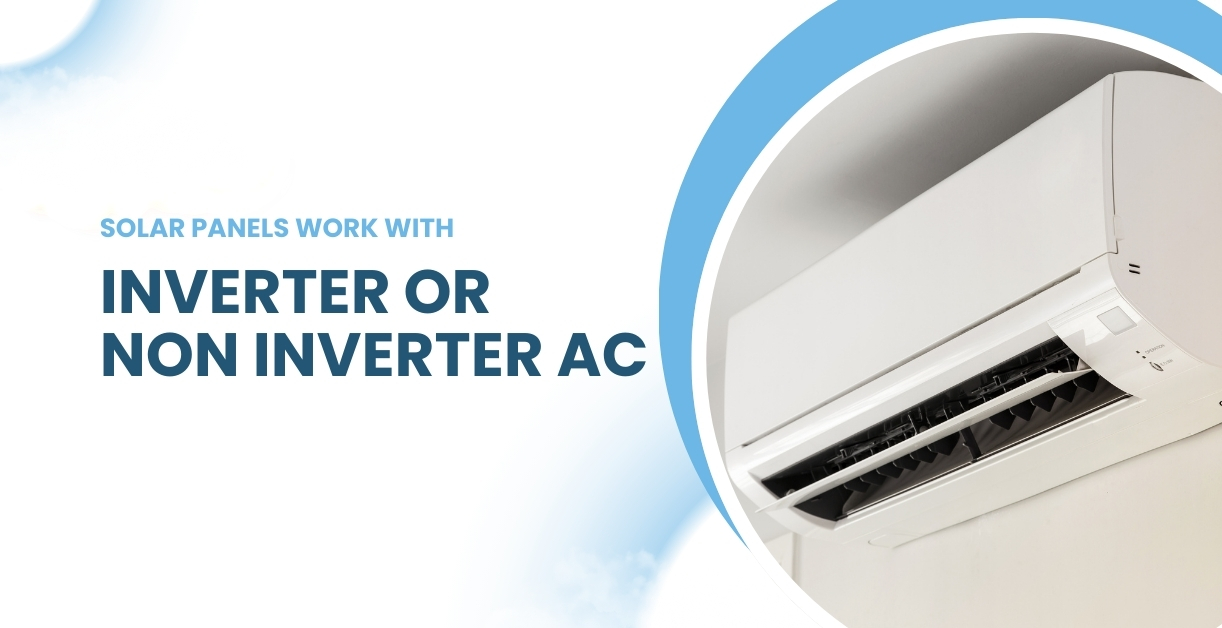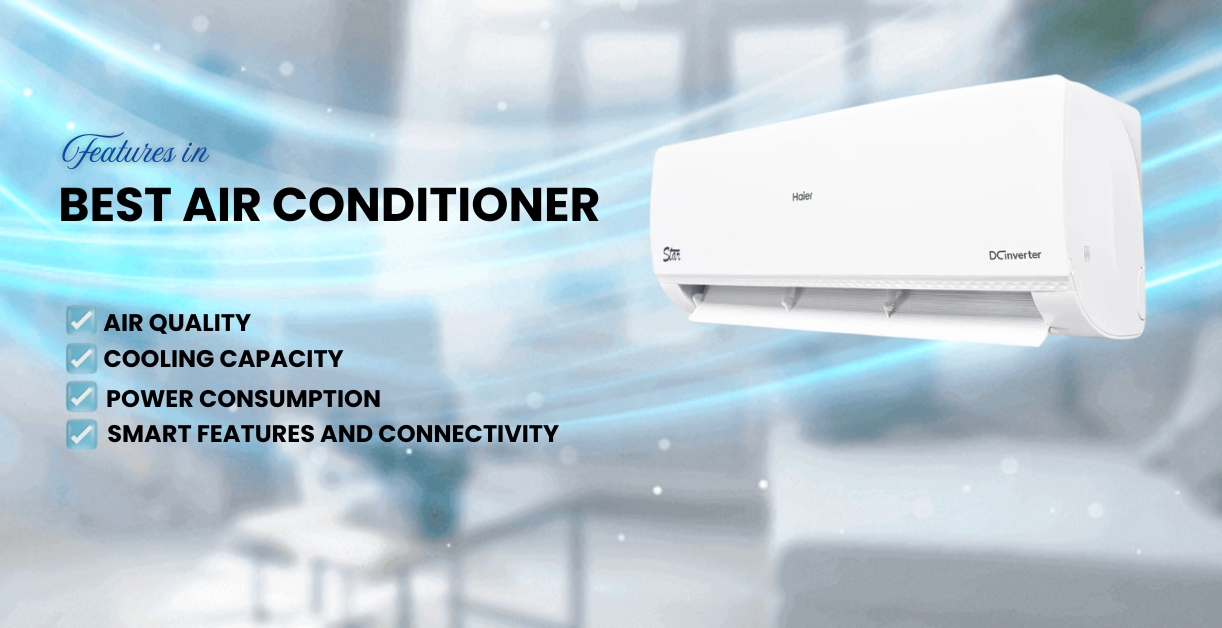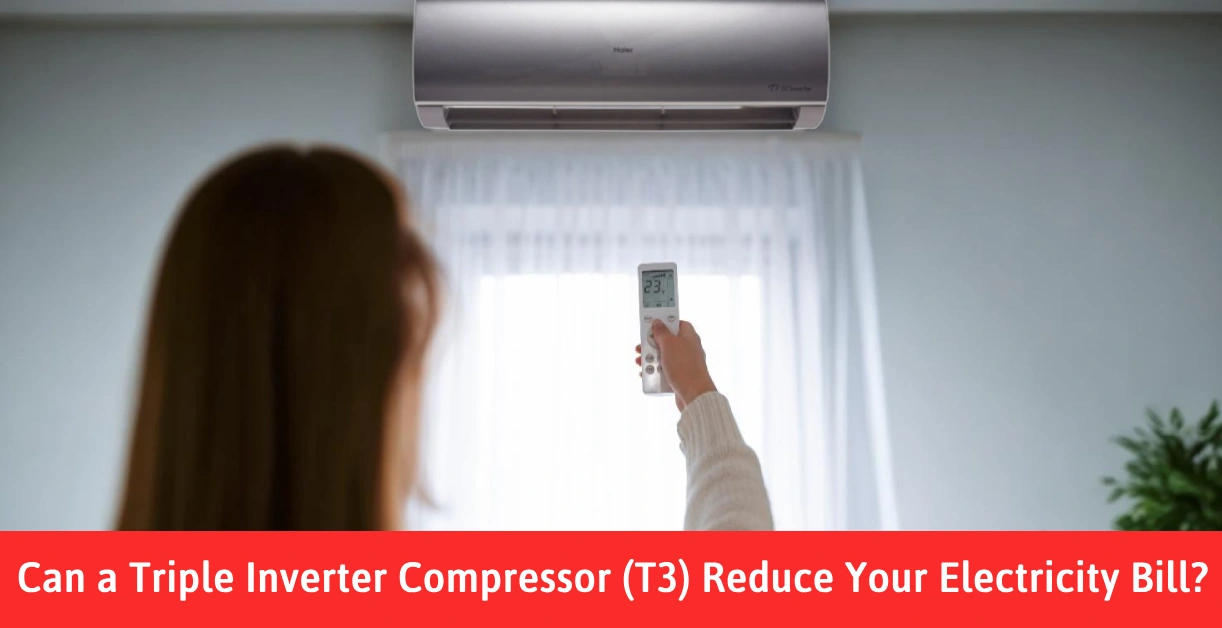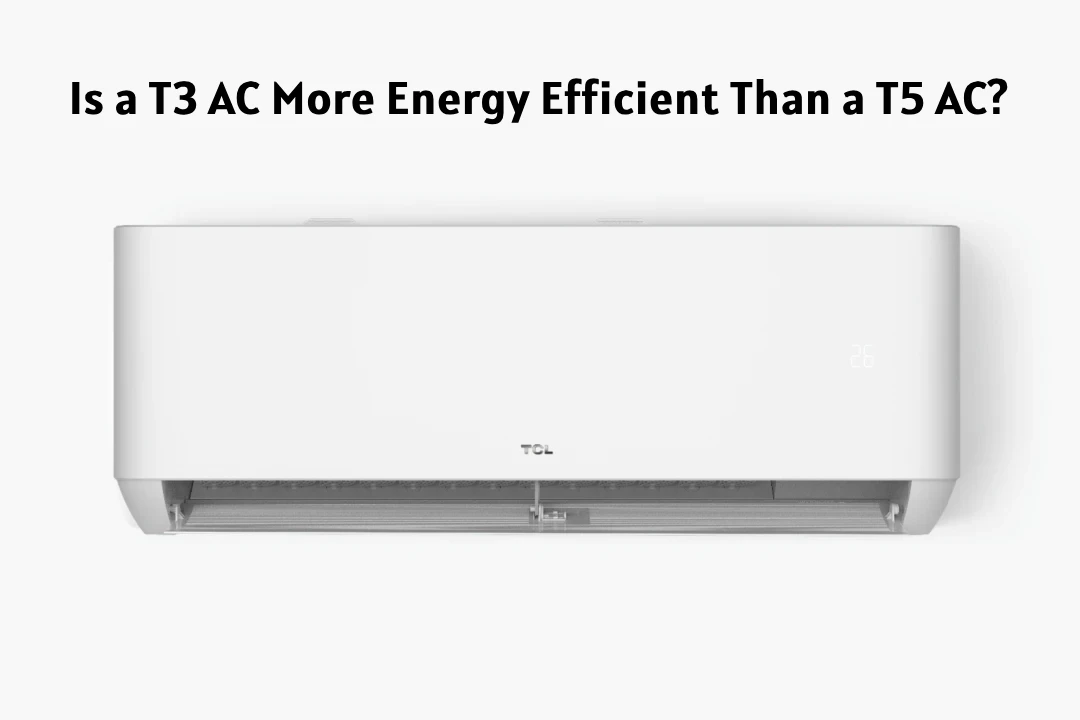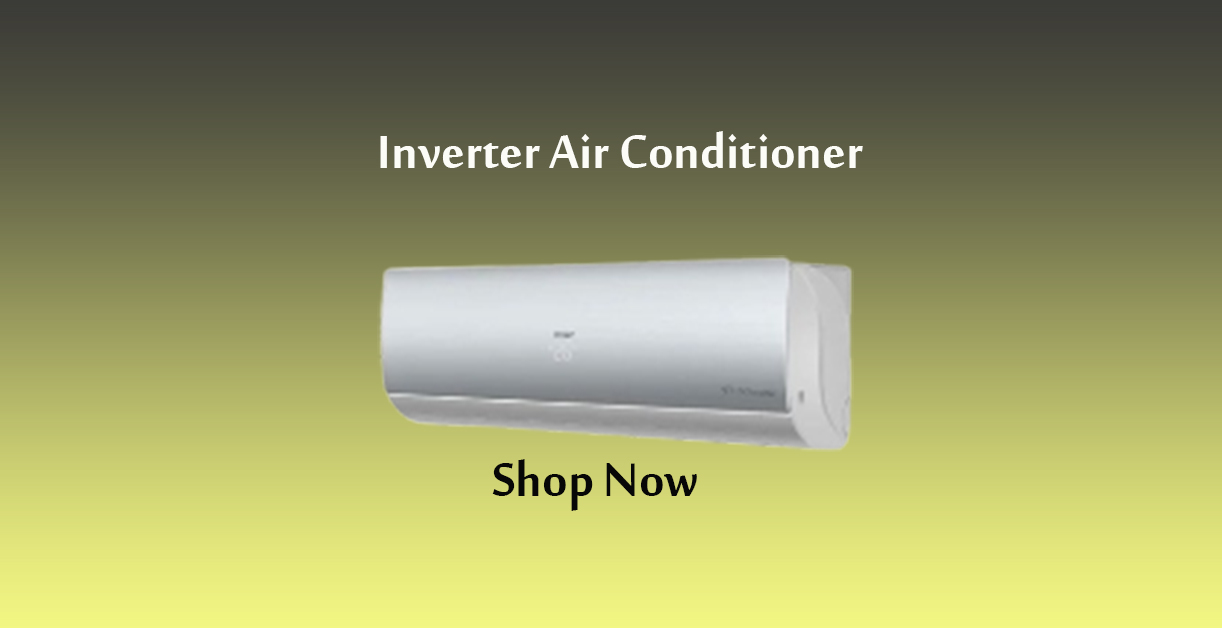As solar energy becomes more popular, many homeowners and businesses want to run air conditioners using solar power. Choosing the right air conditioner is essential to ensure efficiency and cost savings. The two main types of ACs available today are inverter and non-inverter models. But which one works best with solar panels? Let’s break down their differences and see which one is the better option.
Understanding Inverter and Non-Inverter ACs
Before deciding which AC suits solar panels better, it’s essential to understand how each type operates.
Inverter AC
- It uses variable-speed technology, meaning it adjusts the compressor speed based on cooling needs.
- It consumes less power as it maintains a consistent temperature instead of frequently turning on and off.
- Works efficiently in areas with unstable voltage and reduces electricity waste.
Non-Inverter AC
- It works on a fixed-speed compressor, meaning it either runs at full power or turns off completely.
- Consumes more energy as it frequently starts and stops.
- Suitable for places where usage is occasional, and energy efficiency is not a priority.
Now that we understand the basics, let’s compare how each type performs with solar power.
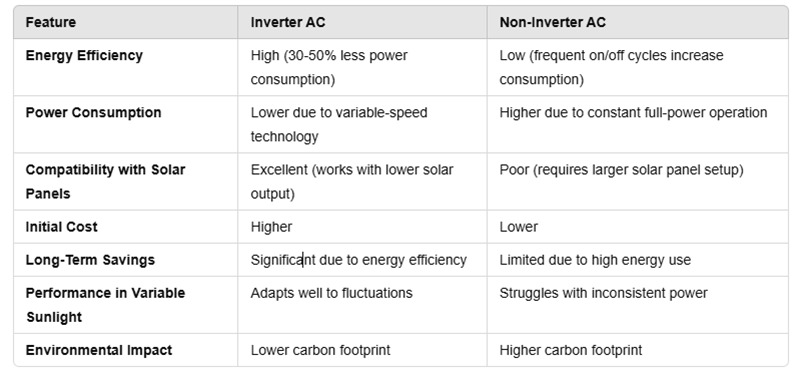
Comparison table between inverter and non inverter AC
Power Consumption and Efficiency
One of the most crucial factors when using an air conditioner with solar panels is energy efficiency. The number of panels installed limits solar power, so an efficient AC ensures better performance.
Inverter AC: More Energy-Efficient
- Runs on low power when maintaining temperature, reducing energy spikes.
- It does not frequently turn on and off, preventing sudden power surges.
- Consumes up to 30-50% less energy compared to non-inverter models.
Non-Inverter AC: Higher Power Consumption
- Uses more energy due to frequent on-and-off cycles.
- Requires a more extensive solar panel setup to meet its power needs.
- It is less efficient for solar-powered systems, especially during cloudy days.
Compatibility with Solar Power Systems
A solar panel system consists of solar panels, an inverter, and a battery backup (if required). The efficiency of an AC depends on how well it integrates with this system.
Inverter AC: Best for Solar Panels
- It works well with solar inverters, making it an ideal match.
- It can run smoothly on lower solar power output, reducing dependency on grid electricity.
- Compatible with battery backup systems, allowing cooling even when the sun is not shining.
Non-Inverter AC: Less Compatible
- It requires a higher starting power, which can strain the solar panel system.
- It does not adjust its power usage, making it less efficient for solar setups.
- It may require a more extensive battery system for nighttime operation.
Cost Considerations
The initial investment and long-term savings also play a role when choosing an AC for solar power.
Inverter AC: Higher Initial Cost, More Savings
- It is more expensive to purchase but saves money on electricity bills.
- Reduces the need for extra solar panels and battery storage.
- It is ideal for those looking for long-term energy savings.
Non-Inverter AC: Cheaper Initially, Higher Bills
- It costs less upfront but leads to higher electricity expenses.
- More solar panels are required to handle its power needs.
- It is not the best choice for those aiming for long-term efficiency.
Performance in Different Weather Conditions
Solar power generation depends on sunlight availability. It’s important to consider how an AC performs when the solar energy supply fluctuates.
Inverter AC: Adapts to Changing Power Supply
- Works efficiently even when solar power generation fluctuates.
- Adjusts cooling capacity, preventing overuse of stored battery power.
- It is more suitable for areas with variable sunlight conditions.
Non-Inverter AC: Struggles with Power Variations
- It requires consistent and high-energy input, making it less adaptable.
- It is not ideal for places where sunlight is unpredictable.
- May frequently switch to grid power, increasing costs.

Inverter AC with solar pannels
Environmental Impact
Using solar energy is an eco-friendly choice, and the type of AC used can affect overall sustainability.
Inverter AC: More Environmentally Friendly
- It uses less electricity, reducing reliance on fossil fuels.
- It emits fewer greenhouse gases, contributing to a greener planet.
- Supports a sustainable and energy-efficient lifestyle.
Non-Inverter AC: Higher Carbon Footprint
- Consumes more power, leading to higher emissions.
- Less effective in reducing energy waste.
- Not as eco-friendly as inverter models.
Which One Should You Choose?
After considering all the factors, an inverter AC is the best choice for solar panel systems. It offers higher energy efficiency, better compatibility, long-term savings, and environmental benefits.
While a non-inverter AC might be cheaper initially, it consumes more power, making it less practical for solar-powered setups. Investing in an inverter model ensures maximum performance with minimal energy waste.
Conclusion
If you plan to run an air conditioner on solar panels, an inverter AC is the smarter option. It ensures lower energy consumption, seamless operation with solar power, and long-term cost savings. For the best solar-compatible air conditioners, visit Lahore Centre and choose the perfect cooling solution for your needs!

